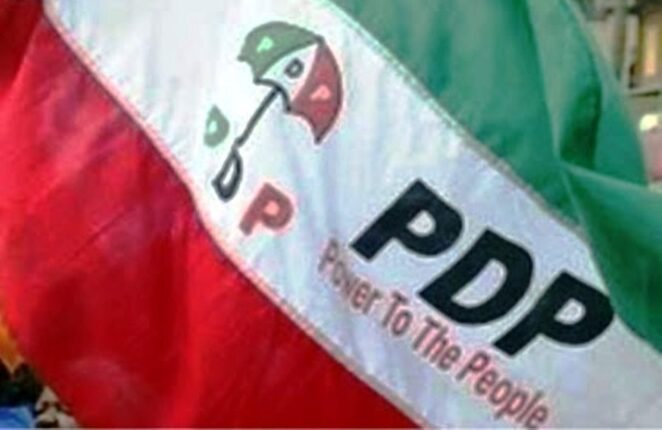By Philius Okoh
The political landscape in Nigeria has entered a season of anomalies, where political actors, akin to hunters, are evaluating their strategies—deciding whether to harvest, adjust, or relocate their efforts for more favorable outcomes. This pattern has been evident since the inception of political contestation in Nigeria. Today, I aim to shed light on these trends, their impact on our political trajectory, and the imperative for us, the citizens, to remain vigilant—to “shine our eyes,” as the younger generation would say.
Reflecting on history, the collapse of Nigeria’s First Republic can be attributed significantly to the cross-carpeting of elected officials in parliament. This reckless political maneuvering exacerbated existing tensions, leading to a chain of events that culminated in the intervention of young military officers—an upheaval from which Nigeria has yet to fully recover.
Regrettably, instead of learning from these historical missteps, we have witnessed a deterioration in political stability and a decline in the integrity of elected officials across all levels. A notable instance is the defection of Alhaji Atiku Abubakar, GCFR, who, as a sitting Vice President, switched political allegiance without first resigning from office—a move that affronted democratic principles. This trend permeates the Senate, the House of Representatives, State Assemblies, and Local Governments; even governors and their deputies are not exempt from this disgraceful practice.
At its core, cross-carpeting epitomizes corruption in one of its most egregious forms—it is political robbery, plain and simple. The Supreme Court has ruled that votes cast in elections belong to political parties, not individuals. The court has further clarified what constitutes a political crisis or factionalization within a party. Any elected official confident in their political appeal should be able to attract the same votes in their new party. Yet, they know our democracy is party-based, and they recognize their inability to win elections independently. Hence, they attempt to convert the votes of one party for the benefit of another.
This mindset is no different from that of a banker who embezzles depositors’ funds, an armed robber, or a kidnapper demanding ransom. The allure of the commonwealth keeps these politicians from choosing the path of honor and integrity.
To be addressed as “Your Excellency,” “Distinguished Senator,” or “Honourable Member” implies a measure of integrity, or at least an understanding of what it means. Yet, any elected official who entertains the idea of cross-carpeting lacks even a shred of integrity. They remain in office solely to loot the commonwealth.
While voters may be pure at heart, simplistic, and trusting, it is time for us to “shine our eyes”—to be vigilant and discerning. To illustrate this, I will use the Delta North Senatorial Seat as a case study, given my familiarity with the district.
All our Senators who have been acknowledged for their performance maintained their political loyalty. Senator Osakwe, for instance, had to run under an unknown party due to unjustified internal politics within the PDP. However, the people rallied behind him, and he eventually returned to the PDP after his victory. This demonstrated the electorate’s ability to make a collective decision in the face of party manipulation.
Fast forward to Senator Nwaoboshi. Against all odds, he secured the party’s ticket at a time when his financial resources were not at their peak. During his campaign, he tragically lost his brother. Out of respect, party members took it upon themselves to campaign on his behalf, funding and driving his election victory without expecting anything in return. However, he soon became obsessed with the idea that Governor Ifeanyi Okowa had an interest in “his Senate seat,” prompting him to defect to the APC with the very votes the PDP secured for him. He eventually lost the election. The paranoia that drove his defection was unfounded—Senator Okowa had no interest in his seat.
Now, enter Ned Nwoko. With no pre-existing political structure in the PDP, he managed to secure the party’s ticket. Once again, party members rallied behind him, ensuring his victory. Yet, on his very first day as Senator, his cronies declared him “the best Senator ever.” Soon after, he too succumbed to the same delusion—that Senator Okowa wanted “his seat.”
What followed was a brazen attempt to hijack the entire party structure in Delta North. He approached the national leadership of the PDP to purchase nomination forms for all ward executive positions in every local government within the district. The irony? He had no political base before becoming the party’s candidate. His real motive? To entrench himself in power and, when the time is right, defect—stealing PDP votes for the APC, just as his spokesperson has hinted. This exposes the insincerity behind his every move.
The examples above illustrate how politicians degrade the offices they occupy. Whether as Senators, Governors, or even Presidents, these actions stem from one thing: greed and self-centeredness.
Now is the time for us, the people, to be vigilant. By their actions, we shall know them. Those who shouted “APC” yesterday and now chant “PDP” today—know them for who they are. Those who screamed “PDP” yesterday but now align with “APC”—understand their game. They are the first we must resist if Nigeria is ever to achieve meaningful democratic progress.
Philius Okoh, writes from Asaba
